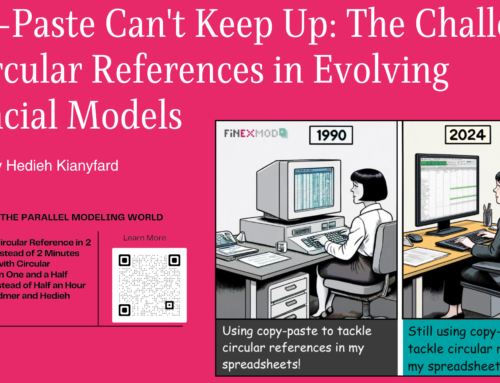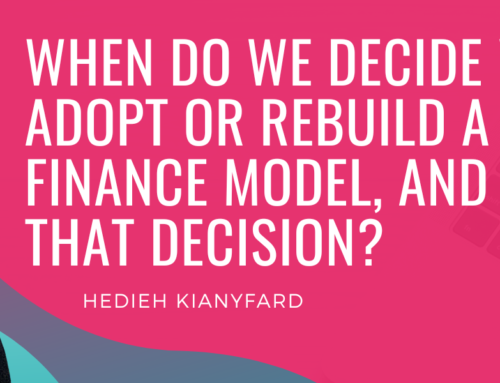I do financial modeling. I spend most of my time working on Excel spreadsheets. How does working on project finance models shape my personality?
To tell you the full story, I need to step back and start from the beginning.
I studied economics and my ultimate aim was to become an academic. I loved teaching and learning. I undertook my Ph.D. studies in economics during which I came to I understand that the academic world is not as rosy as I‘d thought it. I saw the greed in people eager to scale the ladders in academia, to become assistant professor, then associate professor, and eventually full professor. I saw the pressure to publish in reputable journals or to get funding to attend seminars. Then the 2008 subprime banking crisis happened and all economic predictions failed.
At that time I lost all hope in academic research: the only thing that made sense to me was project appraisal. I told myself, “if you are interested in development, then help with the appraisal and filtering of good projects from the bad ones and along the way, if you have to deal with greed, why not go to the source, which is the private sector?“ To my surprise I found the private investor to be the one who is the most rational and reasonable actor in the market. They come with an idea in mind, take risks, do the work and reap the rewards (or eat the losses), and I respect that.
I started working as a trainer in executive programs in investment appraisal and risk analysis. At the time, I was confident that I knew how to make financial and economic models and I was teaching this to executives. When I started working as a financial modeler at the African Development Bank, I learned the difference between theory and practice the hard way. I had first to acknowledge that I knew nothing and started learning while doing. Working for lenders gave me a great self-confidence. Sponsors were coming asking the bank for a loan and I had to make sure that the project was financially viable and could comfortably repay the loan. I learned to look at the world with the eyes of a lender. Then I started working for financial advisory firms and equity funds. This time I was on the opposite side of the table and witnessed how the world looks from the perspective of equity investors.
All these made me who I am today. Most of all, however, who I am today is shaped by the many hours I spend building and reviewing Excel spreadsheets. Here are the things I‘ve learned from many sleepless nights working on project finance models:
- I learned to be flexible: Project finance is a very volatile world. You always need to keep your options open. There were so many cases where I was involved in a project that was near to closing but then out of the blue something happened and the whole deal and financial model needed to be restructured.
- I learned to be simple: Deals are complicated but once you understand the deal and the complications then you can simplify the model. Professor Edward Bodmer’s materials set a great example. He makes the most complicated topics easy and fun to understand and to me that shows the ultimate proficiency in a subject.
- I learned to be organized: I learned how to keep track of different model versions and respect financial modeling standards, which are mainly about best practices when it comes to formatting and designing spreadsheets.
- I learned how to communicate: As a financial modeler, you need to deal with different stakeholders. You need first of all to reflect these different points of views in your financial model and also to be able to see the world from the perspective of these stakeholders.
- I learned to be a solution provider: When you start working within a team, busy investment officers and directors will need justification to go forward with their projects. They tend to come to the financial modeler and ask for a justification for what they think is right. If you as a financial modeler fall into this trap, then you become a problem solver. If, however, you look at the problem and try to provide solutions then you are stepping up as a thinker. You might receive lots of resistance along the way, once you start candidly telling the truth. Yet in the long term, if you start adopting this attitude, you will be respected and acknowledged.
Let me know how your profession has affected your personality.


